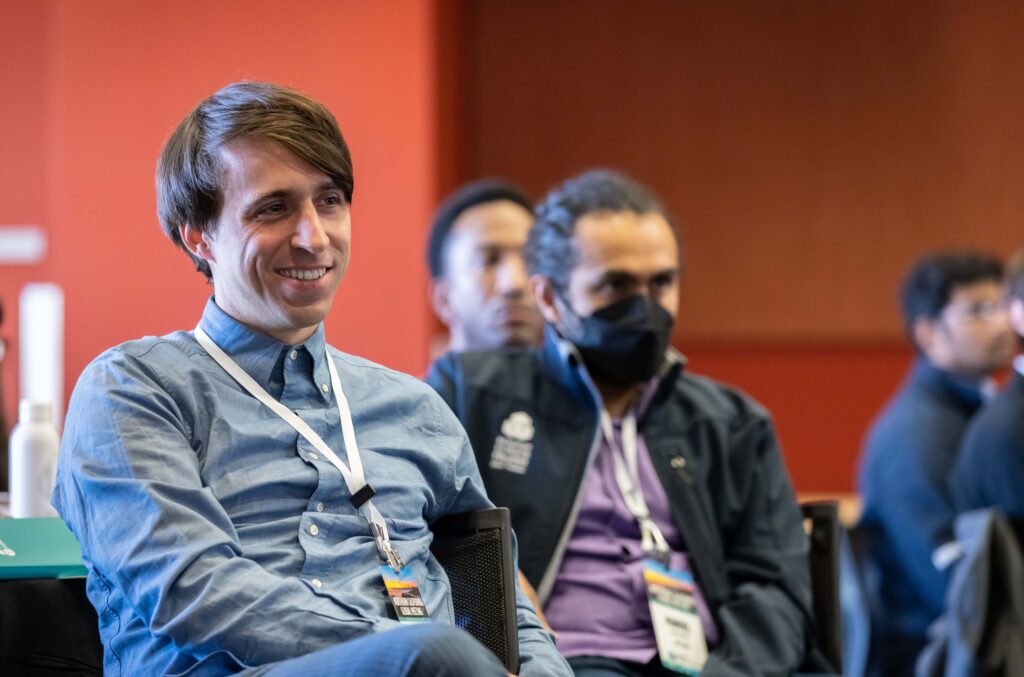 Dr. Ina Anreiter, 2019 Fellow, tells us the lessons she took to heart following the UK Global Meeting.
Dr. Ina Anreiter, 2019 Fellow, tells us the lessons she took to heart following the UK Global Meeting.
What makes a successful scientist, entrepreneur, and leader? During our first Global Meeting, the 2019 cohort of Schmidt Science Fellows had the privilege to meet an amazing and inspiring array of people, each person exceptionally accomplished in their profession. We listened to Nobel Laureate, Professor Sir Venki Ramakrishnan and the Dean of the Faculty of Natural Sciences of Imperial College London, Tom Welton, talk about their scientific careers and the course their lives have taken. We received tutelage in leadership from successful entrepreneurs such as Eric Braverman, CEO of Schmidt Futures, and Tony Danker, CEO of Be the Business. We were given insights into the world of politics and policy making by Prof Ngaire Woods, Dean of the Blavatnik School of Government, and by former British MP, Ben Gummer.
Not only is it inspiring to be surrounded by so much knowledge, initiative, and experience; it also made me wonder: what do these people, whose work has had genuine societal impact, have in common?
Of course, individual career trajectories are as varied as they can be, and there is no one recipe for achieving such an impactful life-trajectory. However, to me, there were common themes that stood out in the combined words of advice from the more than 60 guests and speakers we interacted with during the ten days of our first Schmidt Science Fellows Global Meeting.
In no particular order of importance, the lessons I took to heart were the following.
Follow your passion.
There are many ways scientists can make true impact, but the most favorable route to success is by choosing a cause or problem that is personally meaningful to you. If your heart is not in it, it will be hard to convince others to engage in your cause.
Take initiative.
The best way of getting started is to do something, however small the step might be. There will be successes and failures along the way, but the largest obstacle to accomplishment is to be reluctant of taking the first step.
Be courageous.
The idea of stepping off the beaten path is scary, but it is the risky, new ideas that hold the largest potential for advancement.
Be steadfast in the face of criticism.
There will be people, including senior colleagues you respect, who will advise you not to take on a risky project or not to transition to a new field. However, if you truly believe in your cause, do not let that stop you.
Think big.
Do not be afraid of considering yourself as a person who can accomplish change, who can contribute to science and society in a big impactful way.
The last bit of advice, and the sentiment that especially resonated with me, is be true to yourself. Assess your personal values, feelings and ambitions and follow them. Because by being true to yourself you can muster the resolution to give everything you have to a job, cause or goal.


